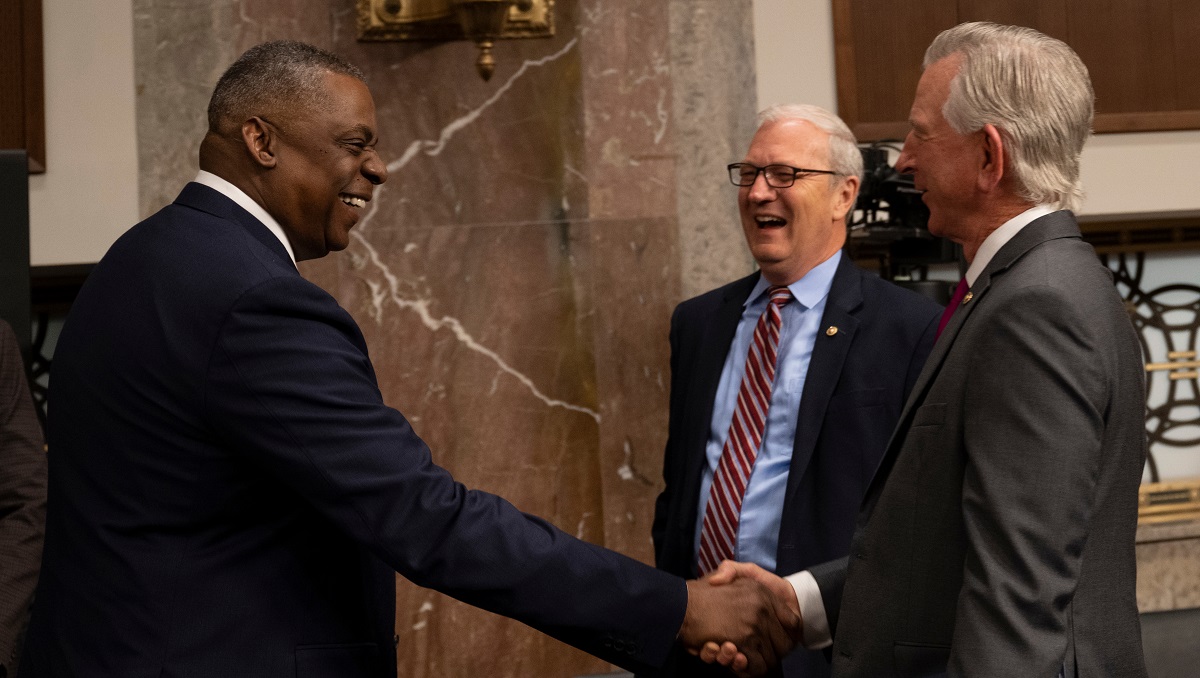
It’s not odd for discussions about civil-military relations to focus on the civilian control exercised by the President of the United States (POTUS). Obviously, in his role as Commander-in-Chief, POTUS sits atop the military chain of command. But a complete discussion has to also consider the military’s relationship with Congress. Members of the House and Senate provide oversight for activities and programs, authorizations and appropriations for the finance of the military, as well as confirmations for the most senior officer promotions. Katherine Kuzminski is in the studio along with guest host Carrie Lee to discuss how the relationship between Congress and the military has changed over time, for better and worse. Katherine brings several decades of experience as an Army spouse as well as her research specializing in Department of Defense institutional and organizational design and management; military recruitment, retention, and talent management policy; veteran and military family issues; and civil-military relations. This is the third episode in a multi-part special series supporting the U.S. Army War College’s Civil-Military Relations Center.
The NDAA [National Defense Authorization Act] provides a lot of levers for changing policy and culture in the services in an indirect way…And so it’s interesting to see how Congress can use the authorization act to enable some cultural change within the services should the services want to take them up on that offer.
Podcast: Download
Subscribe: Android | Email | RSS
Katherine Kuzminski is the Deputy Director of Studies and Program Director, Military, Veterans, and Society Program at Center for a New American Security (CNAS). Her research specializations include Department of Defense institutional and organizational design and management; military recruitment, retention, and talent management policy; veteran and military family issues; and civil-military relations.
Carrie A. Lee is an associate professor at the U.S. Army War College, where she serves as the chair of the Department of National Security and Strategy and director of the USAWC Center on Civil-Military Relations. She received her Ph.D. in political science from Stanford University and a B.S. from MIT.
The views expressed in this presentation are those of the speakers and do not necessarily reflect those of the U.S. Army War College, U.S. Army, or Department of Defense.
Photo Description: Secretary of Defense Lloyd J. Austin III greets Senators Tommy Tuberville and Kevin Cramer before a Senate Armed Services Committee hearing on the Defense Department’s fiscal year 2023 budget request, Washington, D.C., April 7, 2022.
Photo Credit: DoD photo by Lisa Ferdinando





I enjoyed the podcast played on War Room. I have a question for Ms. Kuzminski if I can email it separately to you.
Dirk – Send your question to warroomeditors@gmail.com and we’ll see that it’s forwarded to Ms. Kuzminski. Thanks
As to the U.S. military’s relationship with our Congress today — and with the people of the U.S. itself for that matter — let us consider this from the following perspective; wherein:
a. Instead of the U.S. Congress and the U.S. military, during the Old Cold War of yesterday, being focused significantly on the political, economic, social and/or value changes that the Soviets/the communists, both at home and abroad, introduced — re: communism — after World War II (herein, the U.S. goal, back then, was to prevent this revolutionary change and/or to roll back this revolutionary change),
b. Post-the Old Cold War — and until recently — we found the U.S. Congress and the U.S. military being focused significantly on the political, economic, social and/or value changes that the U.S./the West, itself, both here at home and there abroad, wished to introduce; in this case, re: such things as capitalism, markets and trade (herein, the U.S. goal [until recently] has been to advance, and to achieve, these such revolutionary changes).
Thus, when we are looking for how the relationship between the U.S. public, U.S. political leadership and the U.S. military has changed of late, then should we not, accordingly, start by considering the matters that I present above?
Addendum to my comment above:
As to the matters that I present above, herein to note that:
a. While, in the Old Cold War of yesterday, the more conservative/the more traditional elements in the U.S./the West and elsewhere, these folks were the U.S./the West’s natural allies. (Why? Because they — naturally — stood hard against the revolutionary changes that the Soviets/the communists wished to introduce/had introduced),
b. Post-the Old Cold War, these self-same more conservative/more traditional elements in the U.S./the West and elsewhere, these folks, post-the Old Cold War, because the U.S./the West’s natural enemies. (Why? Because — again — they naturally stood hard against the revolutionary changes that, now, the U.S./the West itself wished to introduce/had introduced.)
Thus, again, to (a) consider the changes in the relationship between the U.S. public, U.S. political leadership and the U.S. military; this, (b) specifically in consideration of the matters that I present above?